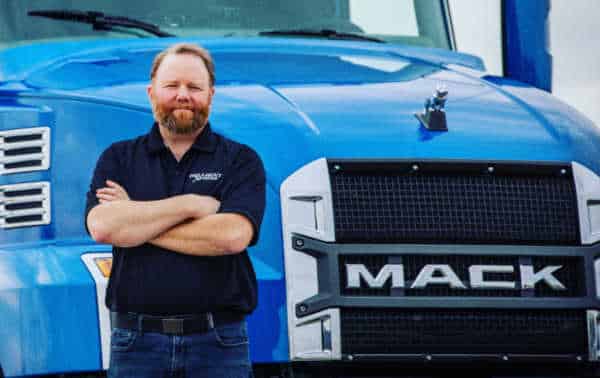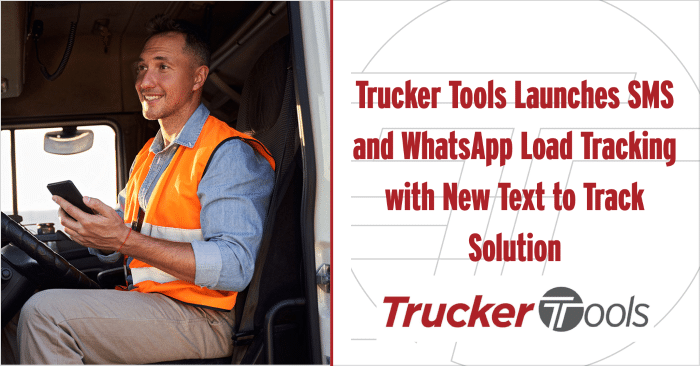It’s no secret that freight markets across the country currently favor owner operators and carriers, but if you’ve been in the industry any length of time, you know that may not last forever.
“Trucking is a roller coaster,” says Gerald Johnson, aka Trucker G, who has been working in trucking for the last 30 years. “It always has been and always will be, as far as I see. It’s got its ups and downs. Prepare for the downs.”
Succeeding in trucking is and always has been about relationships. Regardless of the temporary ups and downs of freight markets and the economy, maintaining good relationships with brokers always benefits you as an owner operator or carrier. Whether you’re just starting out in the industry or you’re looking to work with new brokers, check out these three ways to cultivate positive relationships with brokers.
Deliver on Your Commitments
Jamie Hagan, who’s been in trucking since he was 16, recently shared the knowledge he’s gained about cultivating positive relationships with brokers in an interview with Trucker Tools. Jamie’s history in the industry includes time as a company driver, owner operator and now trucking company owner. Jamie founded his trucking business in 2010 and runs spot market loads. He plans to add new trucks to his business later this month.
“My biggest advice is to get a catchy name,” said Jamie in a recent interview about his trucking company, Hell Bent Xpress. “It definitely gets a lot of people’s attention. They remember me. I also try to be really fun and memorable on the phone. Then you try to deliver on exactly what you said you’re going to do 100 percent of the time. I don’t try to sugarcoat it.”
“My biggest advice is to get a catchy name,” said Jamie in a recent interview about his trucking company, Hell Bent Xpress. “It definitely gets a lot of people’s attention. They remember me. I also try to be really fun and memorable on the phone. Then you try to deliver on exactly what you said you’re going to do 100 percent of the time. I don’t try to sugarcoat it.”

Communicate, Communicate, Communicate
Jamie went on to stay that communication is key in cultivating positive relationships with brokers, especially when you’re running spot market loads. He told us that being a good communicator has helped him in building his business.
“Load tracking is a constantly evolving situation, so stay in communication with people,” Jamie advised. “Let them know what’s going on or if something’s going wrong so that it’s not a surprise to the broker or their customer. Things go wrong and there’s nothing you can do about it. Stay in communication with your customers at all times. Give them too much communication. That’s why I’ve really seen a good favorable response from the brokers that I’ve dealt with.”
“Load tracking is a constantly evolving situation, so stay in communication with people,” Jamie advised. “Let them know what’s going on or if something’s going wrong so that it’s not a surprise to the broker or their customer. Things go wrong and there’s nothing you can do about it. Stay in communication with your customers at all times. Give them too much communication. That’s why I’ve really seen a good favorable response from the brokers that I’ve dealt with.”
Jamie also recommends communicating with brokers in the way that they prefer. If one broker prefers emails over phone calls, then email the broker. If another broker wants you to use an app to communicate with them, then be open to doing that.
Focus on Service
“Always show up clean and with a smile,” says Air Force vet/owner operator Travis Griffin. “Everyone notices that. If you start small conversations, you can get to know everyone. You want to start small and eventually they’ll call you by your first name and get to know you. Always have a great attitude and be flexible. Always give a little extra, even if you don’t feel like it. For example, I’ll ask, ‘Do you need me to doing anything else?’ Something simple like that. If you go into a place where it’s kind of cluttered and you’ve got the time, ask them if they need help moving some trailers around.”
Providing good service to brokers includes a willingness to use digital technology. Most shippers now require digital load tracking from brokers. Brokers also can better manage their costs and resources when they have real-time load tracking information. Being open to using transparent load tracking tools like Trucker Tools’ also can go a long way in cultivating positive relationships with brokers.
Read Truckers Spoke and We Listened: More Results from Trucker Tools’ Carrier Technology Survey to learn what your fellow drivers and carriers had to say about how they use tech.
To download the Trucker Tools app, visit https://www.truckertools.com/carriers/.






